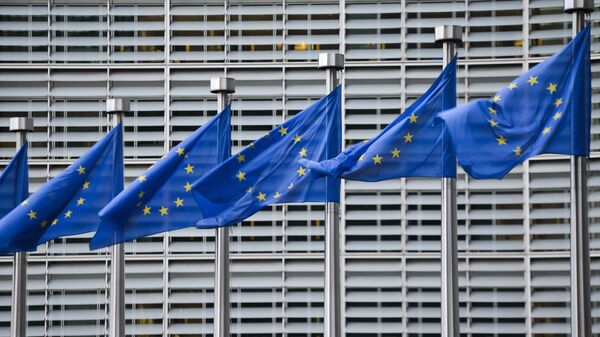The European Commission has developed new proposals which are supposed to provide 19 Eurozone member-states with better protection against future financial crises.
At the heart of the reforms lies the plan to turn the European Stability Mechanism into the European Monetary Fund by 2019. The latter is supposed to have broader powers than the current mechanism and would act as a last resort lender in the event of banking crises. Other measures envision the creation of cash incentives for countries to conduct structural reforms.
The new initiative also intends to help those EU members that are not part of the euro area join the bloc's monetary union. However, some countries criticized the move as an attempt to oto seize power, although the plan is promoted by the European Commission as the best way to tackle existing shortcomings in the Eurozone.
Sputnik: Some EU member states have actually dismissed the plan as an attempt of a power grab. Do you think that that is a legitimate claim?
Dr Stella Ladi: This is something that has very often come at the discussion, that these institutions are becoming too strong. That is why we have seen democratic accountability, and how we can strengthen the democratic accountability of the EU. This means further deepening, federalization, regulations… of the economic policy. We cannot give too many powers to the European Commission, but at the same time, these same countries may not be willing to devolve some of their powers in order to have democratic accountability.
Sputnik: How attractive are the measures that are in place? Do you think they will succeed in attracting those countries to the single-currency Eurozone?
Dr Stella Ladi: It's not only [about] attracting them, it's also to be sure that member states are ready to actually enter the Eurozone. Even if it is not in the most formal way, there will be still criteria there. None of the other countries is ready to join the Eurozone because of economic criteria. If only we have an easier path for these countries, it's a two-way process. The countries have to be ready and the countries have to actually find the new Eurozone attractive. So it's a two-way process. I don't think we are there. We are just trying to have the measures there for them to enter when they are ready also economically.
Sputnik: Is it generally a favourable process or are there some problems that could occur? Perhaps, somewhat similar to what we saw during the 2008 financial crisis?
Dr Stella Ladi: For the Eurozone reform the main goal is to be able to tackle future crises that may come from global reasons. A deeper Eurozone would be able to tackle better crises in the future. And we also saw increasing investments on the economic recovery that has actually already started. Now, whether federalization of the EU, more generally, would be beneficial or not, it is a quite in a way ideological discussion. It depends on how deep member states see the European Union and whether they believe in these projects. Certainly, the way Jean-Claud Juncker talks about it was that he hopes that by 2019… member of the euro area, they also… be a full member of the banking union, Schengen area. And then the reality would be, you know, looking at federal integration. My personal opinion is that federal integration is certainly beneficial for the European member states and that this is the best way to tackle the challenges of globalization. But this depends to whom we talk, ultimately.
The views and opinions expressed by Dr Stella Ladi are those of the analyst and do not necessarily reflect those of Sputnik.

